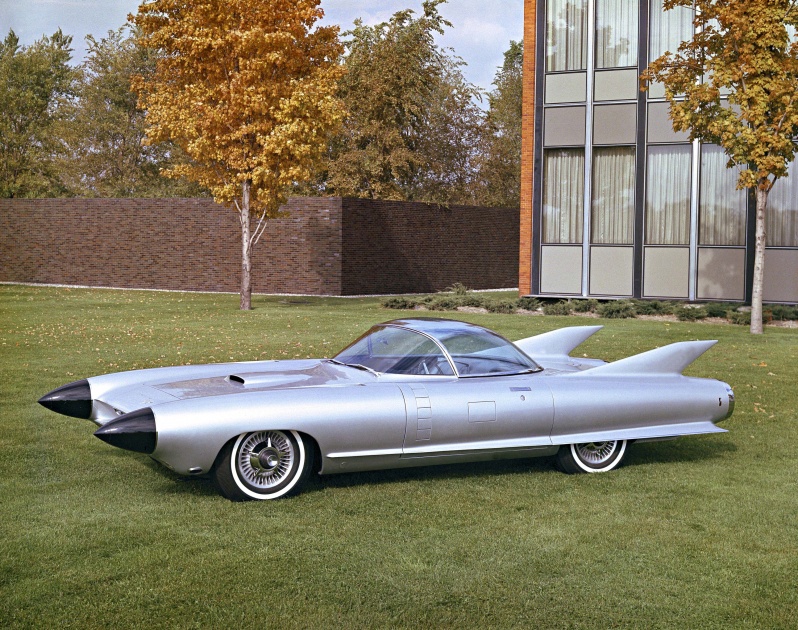
Industry firsts: 10 technologies pioneered by Cadillac that have redefined the automotive world
Across the world, when people want to describe something exceptional, they use the phrase “The Cadillac of…”. This is no coincidence. Since its inception in 1902 Cadillac has been pushing the boundaries of what was possible engineering-wise. This innovative spirit, which continues to this very day, is what has given the brand its lofty standing in the automotive world.
Several automotive innovations that motorists take for granted today, were pioneered by Cadillac decades ago. The rest of the automotive industry followed suit. Here are some of the most significant firsts that Cadillac brought to motoring and how they redefined driving as we know it today.
- Making standardized parts accessible for all
Cadillac introduced the concept of interchangeable parts for automobiles, making it possible to cut running costs for its vehicles. While the concept of interchangeable parts was being used in the 19th century by clock and gun manufacturers, it was Cadillac that took the idea and brought it to the world of automobiles in 1908, thus revolutionizing the industry forever.
- The enclosed body cabin
Cadillac’s Model H was one of the first luxury vehicles made by the brand and was a follow-up to the Model D. Powered by a 30 hp (22 kW) 4.9-L engine, this was notably the first production vehicle with an enclosed cabin in 1910. In fact, it offered two or more body styles from the factory.
- Industry’s first electric starter
While today most motorists take getting into a car and starting it up with the push of a button or the twist of a key for granted, what they probably don’t realize is that they have Cadillac to thank for it. Before Cadillac introduced the industry's first electric starter in its 1912 model lineup, starting a car was an arduous process which used a hand crank. It was also, incidentally, the number one injury risk in the early days of motoring.
Cadillac founder Henry M. Leland, had already pioneered electric lights and electric ignition on his cars. He worked closely with Charles F. Kettering, the inventor of the electric starter, to incorporate the device into his cars. The electric starter also was GM’s first electric motor – a core business today given the growth in the electrification of the automobile.
- Modern Control Layout
Everyone is accustomed to the standard interior layout in a car today: gear lever and hand-brake in the middle and three pedals for the clutch, brake and throttle. In that order. However, very few are aware that it was Cadillac that invented this layout in 1916 that is used to this day. Introduced in the Cadillac’s Type 53 this layout replaced the archaic, and often dangerous, tiller-like arrangements that were used in cars during that period to perform gear changes and acceleration.
- The SynchroMesh Gearbox
Cadillac was the first brand to feature a synchromesh gearbox in 1928. While there have been several iteration of synchromesh transmissions since then, they are all derived from the basic principles of what Cadillac pioneered. The synchromesh transmission enabled the driver to change gears without having to match the engine speed with the driveline. It was also quitter than any other gearbox on the market at the time, which added to the refinement of Cadillacs. Furthermore, not only did this make driving safer, it also made it more enjoyable.
- Shatterproof Safety Glass
In the early 1900s automobiles had regular glass for windshield. While this was normal for back then, in the event of a collision the glass would shatter and fly all around the cabin, posing a grave threat of additional injuries to the occupants. In fact, so serious was the problem that certain car buyers resisted closed-body automobiles. Cadillac introduced the shatter-proof glass in all its vehicles in 1928, making it the first manufacturer to do so. Dubbed Security Plate Glass, its concept exists to this day and has potentially saved countless lives over the decades.
- Selectable Suspension Ride
Adaptive suspension is a common feature in most modern automobiles these days, where the driver can adjust the ride quality at the flick of a switch. However, Cadillac pioneered this technology as early as 1933. In times when cars were still basic in their operation, a feature such as this was ground-breaking. Cadillac owners could change the ride quality of their vehicle in an unprecedented five different ways. While this technology is available on most modern Cadillacs, this was genesis.
- Power Steering
Power Steering is what makes controlling a nearly two-tonne automobile easy. Without Power Steering it would be virtually impossible to make progress in any other area of motoring. While other US manufacturers offered Power Steering as an option, it was Cadillac that included it as standard equipment in its 1954 lineup of cars. It’s a feature that motorists expect as standard in their cars today, but it was with Cadillac where it all started.
- Radar-based Forward Collision Detection
Even to this day not every vehicle is equipped with a radar-based forward collision detection system, however, it was Cadillac who showcased a proprietary radar-based forward collision warning system back in 1959 in its Cyclone XP-74 concept car. Designed to forewarn the driver of an impending collision, the system used two radars in the front of the car. While all modern Cadillacs have this feature, the Cyclone XP-74 concept car was proof of the brand’s forward-looking vision and technological prowess.
- Hands-free Self-Driving Technology
Autonomous driving is the latest buzzword in the automotive industry, however, in 2017 Cadillac was the first brand to deliver true hands-free driving for the highway. Called Super Cruise, the system works on LiDAR, rather than conventional radars to navigate the roads. Today, Cadillac customers have covered over 3,000,000 miles safely and hands free. The system also employs advanced 3D-mapping technology, which has enabled Cadillac to undertake several long-distance trips in the US without incident.



























